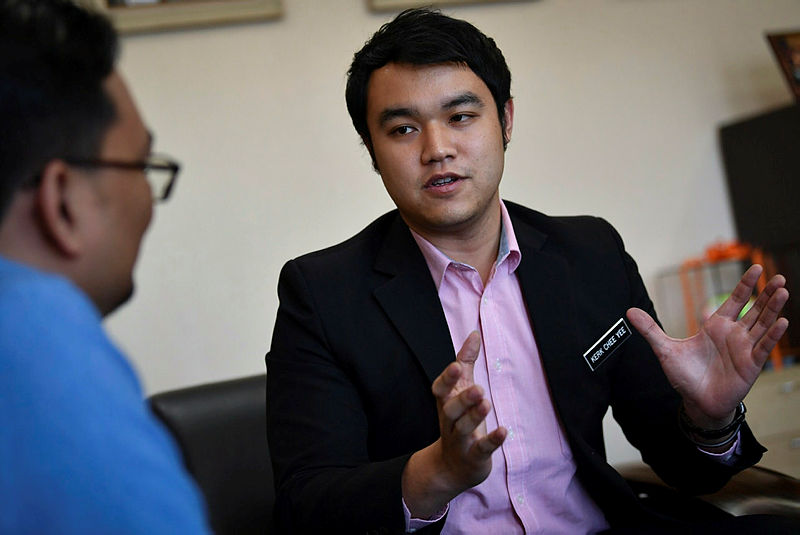MALACCA: Poor sustainability is one of the main reasons the local telecommunication industry is unable to provide the level of service that the people want, says Malacca State Exco Kerk Chee Yee (pix).
This was due to several factors such as bureaucracy and the requirement for a high investment despite low and slow returns, said Kerk, who holds the Communications, Multimedia, NGO, Youth and Sports portfolio.
“The problem of sustainability is one of the first identified when I took over as the State Exco. Laying fibre optic cables, for example, require service providers to go through countless procedures and invest heavily in laying cables. This translates into less profitable business deals,” he told Bernama in an exclusive interview.
NFCP to tackle the issue
A company wishing to lay fibre optic cables in an area would typically need to go through several procedures, which include getting land permit, construction work approval and clearance from various departments. In addition to that, it would also have to deal with the relatively high cost of trenching works.
“In many cases, people would need to wait for years – or even decades – before fibre optics become available,” said Kerk.
The National Fiberisation and Connectivity Plan (NFCP) pilot project in Jasin would help tackle the issue of sustainability as it would utilise Tenaga Nasional Berhad (TNB)’s existing fibre optic infrastructure, he said.
The utility giant already has such infrastructure in place to support its massive and complicated power distribution operation nationwide.
Using TNB’s existing setup would allow telecommunications companies to share the same infrastructure, substantially reducing the cost of setup while increasing the speed of installation, said Kerk. This would allow them to offer high-speed internet broadband service at a much lower price.
The pilot project was launched on Jan 8 by the Communications and Multimedia Minister, Gobind Singh Deo, who had earlier said that the project was crucial for the government as it evaluates the technical, safety and commercial feasibility of the NFCP.
Game changer
TNB has developed fibre optic infrastructure to accommodate 1,100 houses and shops under the NFCP pilot project in Jasin. This covers three areas namely Felda Tun Ghafar Kemendor, Taman Merbau and Taman Maju.
Kerk said that Jasin was chosen as its geographical and demographical traits match the government’s overall target in the NFCP masterplan, which comprise not only urban residences but also suburban, outskirt and remote areas.
“This will help us create a better model to roll out to the whole country,” he said.
Kerk said the availability and quality of the internet in an area could determine its socioeconomic development of the area.
“Hence it is of paramount importance for not just the government but also all stakeholders to ensure that various areas in Malaysia is well-connected because virtual connectivity dictates the pace and progress of various sectors of the country,” he said.
Kerk said that if the pilot project was successful, it could be carried out on a larger scale by TNB. This would allow for the fiberisation for many more locations nationwide and subsequently avail Malaysians to faster and cheaper internet.
Benefiting the people
He believed that the model created by the pilot project would also create healthy competition among industry players, particularly among network service providers.
“Customers will benefit from the competition to provide the best services at affordable prices. I foresee the initiative to be a game changer to the internet industry and digital landscape of Malaysia,” he said.
Kerk believed that youths would also benefit from high-speed internet as it would avail them to opportunities such as online entrepreneurship and digital content creation.
“This would help empower our youths and allow those from rural areas to earn a good living without having to migrate to urban areas, subsequently contributing to the development of rural areas,” he said.
The NFCP project, which combines the use of optical fibre and wireless connectivity, targets the achievement of 98 percent baseline coverage in inhabited areas by 2023 with a minimum bandwidth of 30 Mbps.
The key role of achieving the plan has been entrusted to the Communications and Multimedia Ministry. Its minister Gobind Deo believes that the internet is a basic necessity that should be provided to all the people and not just certain privileged groups. — Bernama










